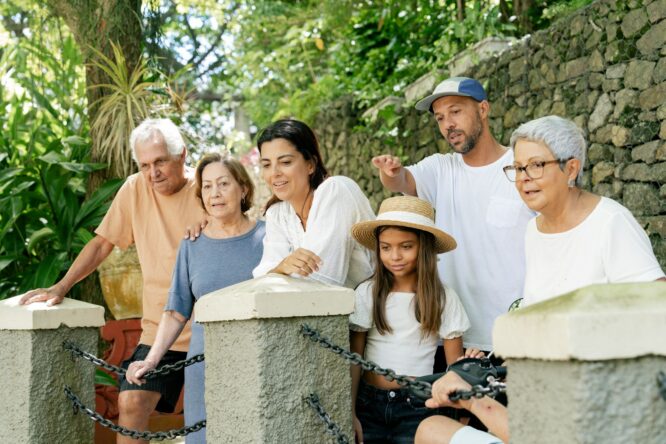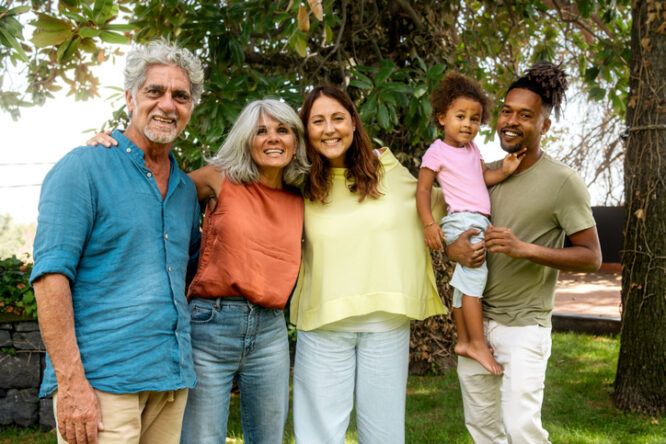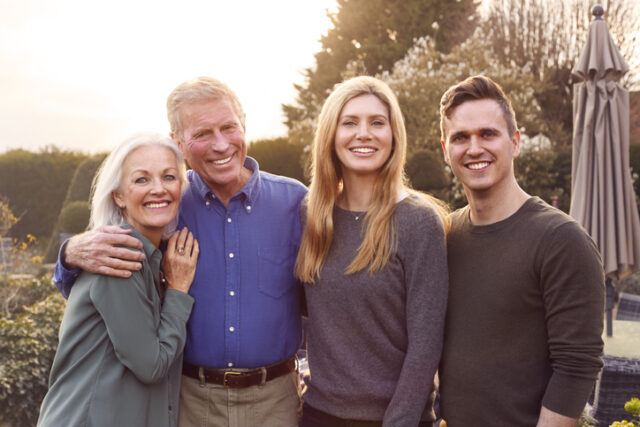Meeting a partner’s parents for the first time feels like stepping into a whole new world.

It’s one you’re suddenly a part of, but don’t fully know yet. As a result, it’s exciting, nerve-wracking, and revealing all at once. Beyond just being polite and making good impressions, there are quiet insights people pick up during that first meeting that often stick with them long after. Here are just some of the little tidbits they take with them after meeting their partner’s nearest and dearest.
1. You realise how much family shapes the person you love.

Seeing your partner with their parents gives you a glimpse into all the little forces that shaped who they are—the good, the complicated, and everything in between. It fills in some blanks that dating stories and casual chats never quite could.
It’s a weirdly grounding feeling, realising that the little quirks, habits, or insecurities you see in your partner did not appear out of thin air. They came from real moments, real patterns, and real people who are sitting right across the table from you now.
2. You notice how your partner handles stress differently around family.

Even the most confident, relaxed people can change a little when they are around their parents. Old habits, anxieties, or people-pleasing instincts sometimes bubble up without warning during those first visits. Watching it happen teaches you a lot about the quieter pressures your partner might carry—pressures they may not even talk about out loud. It gives you a deeper window into parts of them that still ache for approval or peace.
3. You pick up on how they were taught to handle conflict.

It’s not just about what’s said — it’s about the little things, like how people disagree, how tensions show up, or how forgiveness (or resentment) hangs in the air. Families have their own unspoken rules about conflict, and those rules often live inside your partner too.
Seeing it up close helps you understand why they might avoid certain topics, escalate quickly, or freeze during disagreements. It’s not about blaming; it’s about gaining compassion for the roots underneath how they handle hard conversations.
4. You see what “home” looks like to them.

Whether it’s warm and chaotic or formal and reserved, getting a glimpse into your partner’s home life shows you what shaped their idea of comfort, safety, and connection, even if they don’t live that way anymore. It makes you realise that what feels “normal” to you might be completely foreign to them, and vice versa. Bridging those gaps becomes a lot easier once you can actually see where they are coming from instead of just guessing.
5. You catch little glimpses of their childhood self.

There’s something strangely touching about seeing your partner slip into old roles without meaning to—the way they still respond to a parent’s teasing or light up when praised, even if they’re fully grown now. It reminds you that the person you’re building a life with was once a kid trying to make sense of the world too. That softness can make you hold them a little closer once you see it with your own eyes.
6. You notice the silent dynamics more than the conversations.

It’s not always about what people say; it’s about how they sit together, who talks over whom, how affection is shown (or not shown) without words. Family dynamics live in these quiet spaces. Picking up on the undercurrents teaches you things that conversations alone never could. It shows you who carries what in the family, who smooths things over, and who holds unspoken power in the room.
7. You realise how much your partner might still crave approval.

Even the most independent people often carry a quiet thread of wanting their parents to be proud, happy, or at least accepting. You might see your partner subtly shift to impress or soften themselves around family without even realising it. It’s a reminder that no matter how grown we are, most of us still carry the old ache of wanting to be fully seen and loved by the people who raised us. It makes you see your partner’s heart in a different way.
8. You notice how much space there is for emotional honesty.
 Source: Pexels
Source: Pexels Some families are open books, sharing feelings easily and openly. Others are more guarded, keeping conversations safe and surface-level. Seeing which one your partner grew up in explains a lot about how they open up now. It’s not good or bad, it’s just information. Having that understanding gives you more patience when emotional conversations sometimes feel harder than you expected.
9. You feel where you fit (or don’t) without anyone saying it.

There’s a quiet vibe you pick up when meeting a partner’s parents. Sometimes it’s welcoming and warm. Sometimes it’s polite but distant. Either way, you start to feel in your gut whether there is space for you here or not. It’s a powerful reminder that love between two people is beautiful, but love between families can be its own separate, slower, sometimes messier dance that takes time and care to build.
10. You notice the family’s relationship to boundaries.

Are boundaries respected? Gently pushed? Blown right through? Watching how your partner’s parents handle topics like privacy, opinions, and personal space gives you a preview of what you might be navigating together down the line. It helps you understand what your partner might see as “normal” and where you might need to build new agreements together about what healthy boundaries actually look like for you two as a couple.
11. You realise that “family values” can mean wildly different things.

Meeting the parents shows you that terms like respect, loyalty, love, and communication are not one-size-fits-all. Different families define them differently, sometimes in ways that feel surprising or confusing at first. It teaches you not to assume your partner learned the same meanings you did, and that real connection comes from building new shared definitions together, not assuming you’re already speaking the same emotional language.
12. You see how much emotional labour your partner might have done growing up.

Some people grow up being the peacekeepers, the fixers, the ones who absorb everyone else’s feelings. Meeting the parents sometimes shows you just how much silent emotional work your partner carried before they even met you. It makes you want to be a softer place for them to land, not another person asking them to perform, fix, or hold everything together without support.
13. You notice if joy comes easily, or if it feels complicated.

Family gatherings should be light and joyful, but sometimes you can feel the tension even when everyone is smiling. You notice whether laughter feels natural or strained, whether connection feels easy or like hard work. It gives you a sense of what “happy” looked like in your partner’s early life, and what kind of healing, if any, they might still be working through without even putting it into words yet.
14. You see where your partner learned love, and where they had to teach themselves.

Some things your partner does beautifully —kindness, patience, resilience—were probably taught to them. Other things, like setting boundaries or expressing feelings, might have been skills they had to build without much guidance. Meeting the parents lets you see the foundation they started with. It makes you realise how hard they have worked to grow beyond what they were given, and how much strength it takes to choose new patterns when old ones run deep.
15. You realise you’re not just dating a person, you’re walking into a story.

Meeting a partner’s parents reminds you that none of us exist in a vacuum. We are all shaped by histories, families, patterns, and scars that stretch far beyond what someone shows you on a first date. Choosing to love someone is also choosing to understand where they came from—and deciding, together, what kind of story you want to write next, no matter how the old chapters were written.




